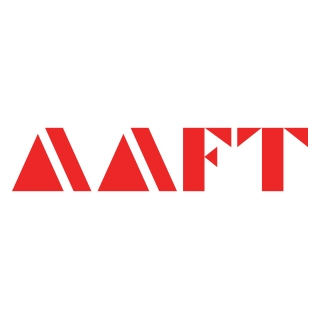Emerging Trends in Health and Wellness Education in 2025
As we are approaching 2025, awareness about health is rapidly expanding. People are implementing holistic strategies to maintain their overall well-being. This trend is more likely to continue in the coming decades.
For this reason, trends in health and wellness education is slowly gaining shape, with more and more students seeking to enroll in these food nutrition and dietetics courses. Therefore, knowledge about these emerging trends will help you make informed decisions regarding your study goals.
In this blog, we shall understand some critical health and wellness education strategies and the key technologies that will more likely dominate this domain. We’ll also gain a spotlight on how aspiring students can leverage this opportunity.
Rising Strategies in Health and Wellness Education for 2025
Many strategies are evolving in health and wellness education with the blend of rising eco-sustainability, inclination towards health, and the competitiveness the sector provides to aspiring health and wellness professionals. Below, we have described some key strategies that will slowly gain traction in 2025.
1. Personalized Learning through AI and Data Analytics
Do you want free career counseling?
Ignite Your Ambitions- Seize the Opportunity for a Free Career Counseling Session.
- 30+ Years in Education
- 250+ Faculties
- 30K+ Alumni Network
- 10th in World Ranking
- 1000+ Celebrity
- 120+ Countries Students Enrolled
AI-driven tools have been instrumental in opening brighter career opportunities for students. These tools analyze individual progress to craft customized strategies for mastering practical skills like nutritional planning, fitness assessments, or mental health support techniques. By leveraging data analytics, students can focus on their strengths and areas for improvement, ensuring a well-rounded and industry-relevant education.
2. Holistic Health Education
Today, health awareness is not just about physicality; rather, it extends to holistic practices that include emotional, mental, and social health. By taking holistic care of your health, you can cultivate your best potential to become a full-fledged professional.
Furthermore, modern food nutrition and dietetics courses are designed with holistic approaches in their curriculum, ranging from mindfulness and stress management to emotional intelligence.
Book Now →
3. Focus on Mental Health Literacy
In the fast-paced world, staying ahead of others has triggered numerous mental-related issues like depression, anxiety, higher temperaments, and patient loss. These issues have prompted educational institutes to focus on mental health literacy as the core component of their courses.
Students are already learning about identifying, managing, and preventing mental health concerns. With time, you may expect more such knowledge-filled interventions and preventive cure clinical nutrition and dietetics courses on mental health and awareness.
4. Integrative Health and Wellness Programs
It’s not only about mental health-related concerns. Many institutes are offering programs that combine the study of traditional medicine, nutrition, physical fitness, and alternative therapies, including yoga, meditation, and health medicine.
Do you want free career counseling?
Ignite Your Ambitions- Seize the Opportunity for a Free Career Counseling Session.These integrative programs provide students with the knowledge platform to understand diverse healthcare practices and their impact on well-being.
5. Health Equity and Social Determinants of Health
Future health education is extending wider from their regular curriculum. With the societal focus on social determinants like income, education, and healthcare access, the health institute is also looking to make full use of this practice.
They are actively trying to address these health equities to cover comprehensive health and overall wellness boundaries. Students are trained to recognize and address health-related disparities to create inclusive wellness programs.
6. Increased Emphasis on Preventive Health Education
Preventive health is more vital than reactive health. When individuals will look to prevent chronic diseases, the health-related concerns would like to decrease. Therefore, preventive health education is becoming central to these programs.
Such clinical nutrition and dietetics courses teach students the importance of lifestyle changes, yoga and meditation, and other preventive strategies to maintain long-term, sustainable health.
7. Hybrid Learning Models
Blended learning models are not a new concept. Numerous programs are already utilizing them to maximize their students’ learning potential. They incorporate the benefits of both online and offline education, offering immersive experiences to the students.
Furthermore, this approach makes health education more accessible and adaptable to wide individual schedules in remote regions where students cannot access physical courses.
8. Sustainability in Health Education
Sustainability is the key to any health education. With global warming gripping our ecosystem, preventing pollution and animal hunting has become a necessity. Food nutrition and dietetics courses institutes focus on sustainable practices, such as eco-friendly nutrition, organic diets, and reducing carbon footprints in healthcare.
This trend encourages students to adopt sustainable habits and incorporate them into wellness programs.
9. Telehealth Education and Digital Health Literacy
Telehealth is a way for patients to easily connect with their health consultants through video calls, get their health monitored, and receive practice advice on their fitness. Nutrition and dietetics courses are utilizing this opportunity and incorporating these elements into their curriculum.
Moreover, by gaining proficiency in digital health literacy, future professionals can effectively utilize digital tools for healthcare delivery.
10. Virtual Reality (VR) and Augmented Reality (AR) for Immersive Learning
Virtual Reality (VR) and Augmented Reality (AR) offer opportunities for learners to explore diverse health scenarios, anatomy, and physiological processes in a realistic and simulated environment.
These conditions allow them to practice health-related procedures safely and efficiently.

How Students Can Leverage this Opportunity?
The trends described in this blog can be fruitful in the long run if they are implemented in the right way. Below, we have listed how you can leverage these trends to make your learning experience seamless and worthy:
1. Embrace Personalized Learning Tools: Students can take advantage of AI-powered platforms to get information on personalized study plans, interactive modules, and real-time feedback. By tailoring the learning experience to your individual needs, you can thoroughly grasp complex health concepts more effectively.
2. Engage in Immersive Learning with VR and AR: Virtual Reality (VR) and Augmented Reality (AR) are the realities of 2025 (and beyond). Work on your skills to enhance your understanding of these tools so that you can handle real-world challenges easily and with precision.
3. Develop Digital Health Literacy: As telehealth becomes more prominent, students should familiarize themselves with digital health tools like AI Chatbots (ChatGPT and Google Gemini) and Teams. By gaining proficiency in these technologies, you can always stay ahead in your career, whether you pursue healthcare, public health, or wellness coaching.
4. Advocate for Health Equity: Learn about health equity and social health determinants to promote holistic healthcare in your local society. Understanding these concepts will enhance your knowledge and allow you to create meaningful community changes.
Final Thoughts
We hope you understand this insight into emerging health and wellness education trends. With the advent of newer technologies and innovative techniques, the standard of learning is gradually advancing.
The year 2025 may witness significant transformations like Virtual Reality, AI advancements, and digitization at this pace. Such technologies will severely impact your educational standards and make your learning experience smoother and more enjoyable.
For more information or to enroll in any of our food nutrition and dietetics courses, consult our AAFT team of experts.

AAFT has been providing the world with limitless creativity and expression since 1993! Through a dynamic and industry-driven curriculum, AAFT provides engaging and captivating articles to persuasive blogs and empowers its readers to explore diverse avenues of creative media education-related content.






